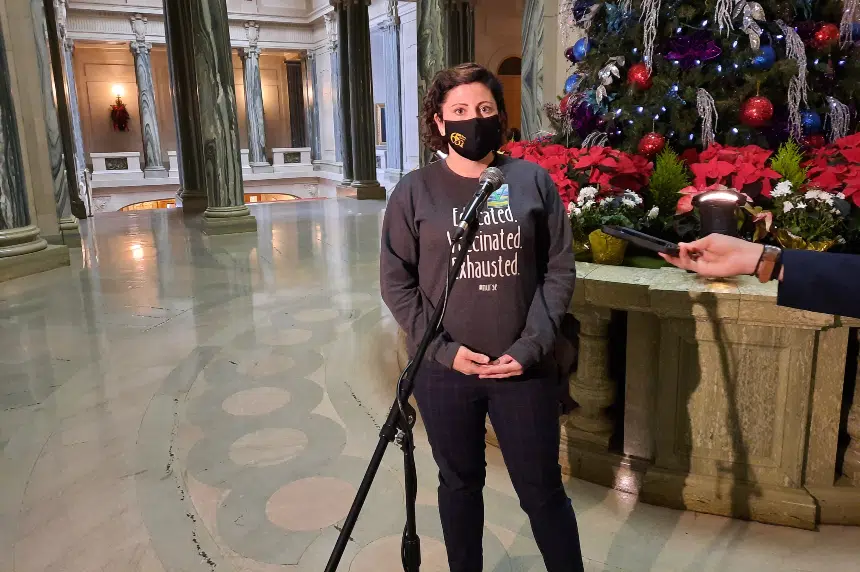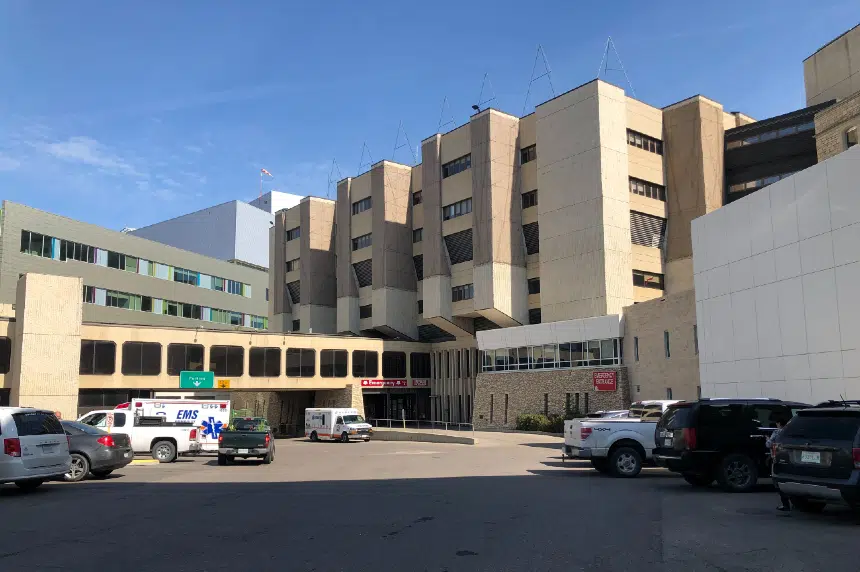Saskatchewan health-care workers are looking to work less, leave the field or retire early as distress and other mental health strains increase following the latest wave of COVID-19.
A survey from University of Regina assistant professor Sean Tucker released Thursday found stress was an underlying factor in the growing numbers of people looking to cut hours or leave health care entirely.
“We’ve got three factors coming together,” he said. “We’ve got enormous pressure on the system to catch up on the backlog of surgeries and other health-care procedures, we’ve got health-care workers who are feeling burnt out and we’re also hearing from health-care workers across the system who feel understaffing is a concern.
“It is a vicious cycle.”
More than 3,000 unionized health-care workers responded to of the survey starting in May 2020 with 3,719 responses. The latest round of the survey wrapped up on Nov. 15 with 3,109 responses.
The survey results highlight a problem of short-staffing, which existed long before COVID but has become increasingly worse with each wave of the pandemic.
Short-staffing is one thing, but coupled with a 12 per cent rise — from 11 per cent to 23 per cent — in respondents “probably experiencing a mental illness” and the potential consequences become even more dire.

Melissa McGillivray speaks to reporters at the Saskatchewan Legislative Building about understaffing and mental burnout. (Lisa Schick/980 CJME)
Melissa McGillivray is a registered nurse at City Hospital in Saskatoon. She has become accustomed to change, working in long-term care, emergency care and ICU, even though she’s not trained as a critical care nurse.
“People crying at work — that never used to be the norm,” she said earlier this week at the legislature as a guest of the NDP to highlight burnout among health-care workers.
“People taking more sick time because they just can’t handle shifts. I’ve never worked so much overtime in my life and it’s because if I pick up the overtime, my co-workers can have a day off.”
Forty-two per cent of respondents said they were more likely to reduce their hours or change to casual status than before the pandemic. Nine per cent said it was less likely.
Forty-six per cent of respondents said they were more likely to want to change their employer, and 46 per cent said they were more likely to want to leave the profession outright.
McGillivray thinks many have already left.
“I have nurses who are going to contract nursing because they feel like what’s the point of having benefits and (a) pension when you don’t feel like they can handle the work,” she said.
“They’re leaving to B.C., they’re leaving to Ontario. That never used to be the thing. People wanted to come to Saskatchewan because we had great jobs.”
Using the Kessler scale — a measure of psychological distress — Tucker said a third of respondents who indicated they were more willing to leave or reduce hours were “probably experiencing generalized anxiety or depression.”
“What it is for them is a coping mechanism, wanting to take some time off for self-care when they’re experiencing mental health issues,” Tucker said.
Responses being similar to other jurisdictions undertaking the same research didn’t surprise Tucker. What did was the striking written comments that followed.
Of those 1,527 comments, 17 per cent said short-staffing was their main concern more than any other.
Simply hiring more health-care workers isn’t an easy option either as all other jurisdictions in Canada and beyond are also recruiting workers.
Tucker said the goal from the unions, the province and the health authority should be to retain workers with the goal of clearing the 35,000-case surgery backlog by 2025 contingent on casual workers taking on full-time work.
“Saskatchewan can’t afford to repeat the mistakes of the fourth wave,” he said. “We can’t recruit our way out of this either. The key going forward will be retention.”
McGillivray hopes those plans come together before another wave takes its toll on a beleaguered health-care industry.
“I think there needs to be a recognition that we had a lot of staffing issues pre-pandemic and the pandemic has just brought to light how prevalent those issues are,” McGillivray said.
“The burnout, the exhaustion on the part of my co-workers is unbelievable.”











